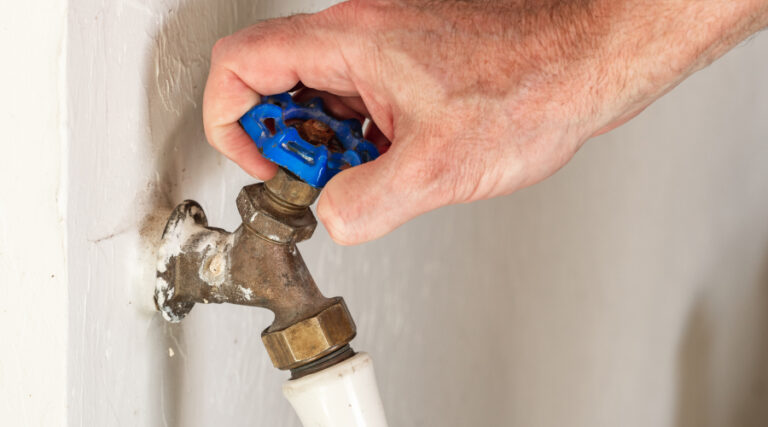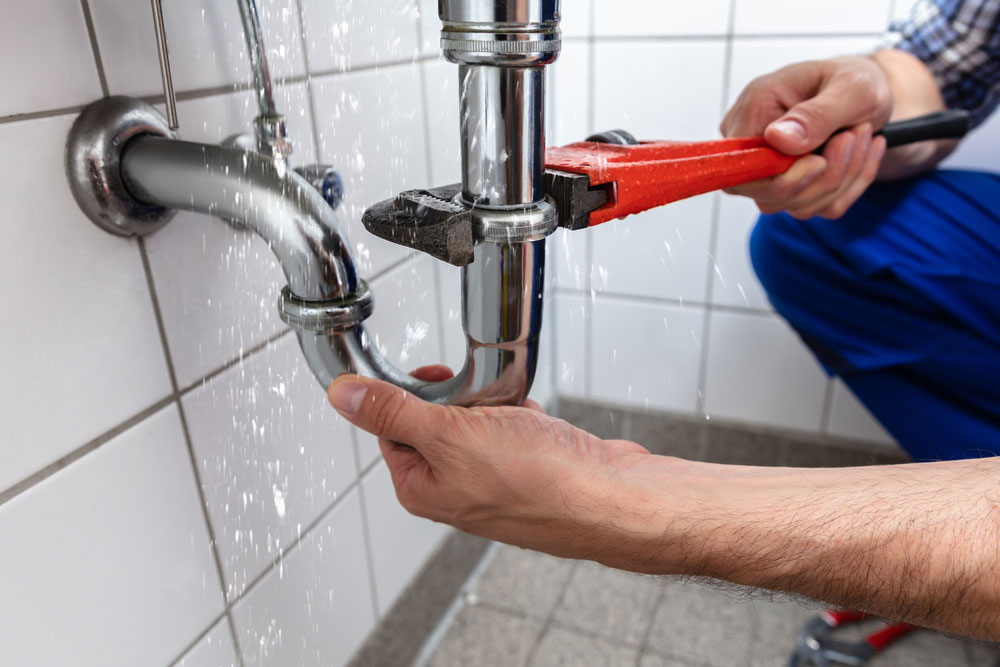This article down below relating to Water Hammer Explained: Causes, Effects, and Solutions is immensely informative. Don't miss out on it.

Introduction
Have you ever before turned off a tap and heard a loud bang or knocking audio coming from your pipes? That unsettling noise, often referred to as an abrupt thud or clunk, is referred to as water hammer. It's not simply a frustrating trait of older homes-- water hammer can happen anywhere, and if left untreated, it can bring about even more substantial plumbing problems. In this short article, we'll debunk water hammer, explore its causes, and review useful means to take care of and stop it. Consider it as your utmost guide to taming those unruly pipes finally.
Abrupt Shutoff Closure
Quickly shutting off a tap or device can develop a sudden water flow halt. Dishwashing machines and washing devices, which have automatic shutoffs, are usually culprits in creating these unanticipated stops.
Incorrect Pipeline Sizing
Pipes that are too tiny for the quantity of water moving via them can raise the likelihood of water hammer. Restricted space indicates greater velocity, and greater rate suggests more powerful stress rises.
High Water Pressure
Too much water stress not only drainages and money yet likewise enhances the impacts of water hammer. The even more force behind the circulation, the more challenging it hits when required to quit.
Why is Water Hammer a Trouble?
You might ask yourself, "Is water hammer just a sound issue?" It's more than that. While the sound can be aggravating, the real trouble lies below the surface.
The Science Behind Water Hammer
Water hammer is essentially regarding kinetic energy. When water relocates with pipes, it carries energy. If something interferes with that activity-- like a shutoff closing as well quickly-- this momentum transforms into a stress surge. Pipelines, fittings, and valves experience this spike in stress, commonly leading to that banging sound you dread.
Common Root Causes Of Water Hammer
Recognizing the origin of water hammer is the first step to fixing it.
What is Water Hammer?
Water hammer is a shockwave of stress that happens within your pipelines when water flow quits or changes instructions quickly. Imagine a group of joggers sprinting down a slim hallway, only to have a door slam closed at the end. The abrupt quit causes a chain reaction, leading to a crash of bodies. In your pipes system, water acts like those runners, and when it's forced to quit all of a sudden, it produces pressure waves that travel with the pipelines.
Noisy Piping and Household Disturbances
The most evident problem is the racket. Hearing clunks and bangs every time you do laundry or run the dishwasher can interrupt the peace in your house. It may not feel like a big deal initially, however over time, it can endure your nerves.
Potential Damages to Plumbing System
Water hammer puts anxiety on valves, joints, and installations. Repetitive stress rises can weaken connections, create leakages, and even cause pipe ruptureds-- an expensive and bothersome circumstance no one intends to deal with.
Long-Term Damage
With time, relentless water hammer can lead to more regular repairs, premature endure components, and a shortened lifespan for your pipes system. Think about it as small tension building up into a larger issue.
Identifying Water Embed Your Home
Prior to you can repair a trouble, you need to verify it exists. So, exactly how do you recognize if you're taking care of water hammer?
Dead Giveaways and Appears
Pay attention for knocking or pounding noises when turning off faucets or running home appliances. If the sound appears ahead from within the wall surfaces, there's a great chance water hammer is at fault.
Performing a Simple Examination
Try turning faucets on and off at various rates. If you notice the sound just occurs with particular components or at certain times, you've gathered clues regarding where and when water hammer is occurring.
Temporary Fixes to Control Water Hammer
If water hammer is driving you up the wall, there are prompt actions you can take.
Readjusting Water Pressure
If your home's water stress is set too high, consider setting up a pressure regulator or readjusting the existing one. Lowering the pressure can reduce the intensity of those shockwaves.
Securing Loose Pipes
Pipes that aren't appropriately protected can intensify water hammer sounds. Including pipe bands or cushioning products can assist maintain them and avoid them from rattling against surfaces.
Making Use Of Air Chambers or Arrestors
Air chambers are basic gadgets that trap a pocket of air in a vertical pipe. This air serves as a pillow, taking in the stress surge. If you don't have them, setting up water hammer arrestors can achieve a similar result.
Long-Term Solutions and Upgrades
If you're looking for even more permanent fixes, it may be time to think about some upgrades.
Putting Up Water Hammer Arrestors
These gadgets, made particularly to respond to water hammer, can be put near components or home appliances. They have a piston and chamber that absorb stress adjustments before they spread out throughout your system.
Identifying Your Convenience Level
If you're handy, you might be able to deal with basic fixes like installing arrestors or readjusting pressure. However if you're uncertain or if the trouble continues, there's no embarassment in seeking expert aid.
When to Call a Plumbing
If your efforts at dealing with water hammer stop working or if you believe surprise problems within your walls, a licensed plumbing technician can identify the problem precisely and suggest long lasting services.
Protecting Against Water Hammer from the beginning
The very best means to manage water hammer is to stop it before it starts.
Including Development Storage Tanks
A growth container attached to your hot water heater can assist mitigate stress fluctuations brought on by thermal growth. By giving water a place to go when heated, you minimize stress and anxiety on pipes.
Upgrading Pipe Materials
If you're preparing renovations or handling an older home, upgrading to more adaptable piping materials, like PEX, can help reduce the threat of water hammer. These materials can soak up shock far better than stiff pipelines.
Stabilizing Prices with Advantages
Remember, the alternative-- pipeline damages, leakages, and consistent annoyance-- can be even more pricey in the long run. Consider these repairs as an investment in assurance and home worth.
Expenses and Considerations
Buying avoiding or taking care of water hammer can save you money over time.
Estimating Costs
The cost differs depending upon the seriousness of the problem and the selected service. Straightforward repairs like including arrestors or pipeline supports could be reasonably low-cost, while a lot more comprehensive upgrades might cost even more.
Do it yourself vs. Professional Help
Some property owners love an excellent do it yourself difficulty, while others prefer to leave plumbing problems to the pros.
Designing a Correct Pipes Layout
If you're developing a new home or undertaking major renovations, speak with a plumbing technician regarding designing a format that lessens abrupt water circulation modifications and consists of proper shock-absorbing components.
Routine Maintenance Checks
Similar to your automobile needs routine service, so does your pipes system. Regular checks for leakages, stress adjustments, and strange sounds can catch problems early and avoid water hammer from taking hold.
Conclusion
Water hammer isn't simply a frustrating noise; it's a signal that your pipes system requires interest. By comprehending what creates it, taking prompt action, and investing in lasting services, you can guarantee your pipes remain calm and quiet. Whether you pick a simple do it yourself method or call an expert, dealing with water hammer is an action towards a more calm and trustworthy home.
Understanding Water Hammer: Causes, Effects, and Effective Solutions
Water hammer is a common plumbing issue that often goes unnoticed until it becomes a significant problem. If you've ever heard a loud banging noise when you turn off a faucet or noticed your pipes making strange sounds, you may be experiencing water hammer. In this blog post, we will delve into what water hammer is, its causes, effects, and most importantly, how to prevent and stop it from wreaking havoc on your plumbing system.
What is Water Hammer?
Water hammer, also known as hydraulic shock, is a phenomenon that occurs when a sudden change in the flow of water within a plumbing system results in pressure fluctuations and shockwaves. This can lead to loud banging or knocking noises in your pipes, and over time, it can cause damage to pipes, joints, and fixtures.
Causes of Water Hammer
Quick Valve Closures: One of the primary causes of water hammer is the abrupt closing of valves, such as faucets, washing machines, or dishwashers. When water flow is suddenly stopped, the momentum of the flowing water creates pressure waves that travel through the pipes, causing the banging noise. High Water Velocity: Water traveling at high speeds through pipes can exacerbate water hammer. This is often the case in larger plumbing systems or systems with oversized pipes that allow water to flow too quickly. Long Pipe Lengths: Longer pipe lengths provide more room for pressure fluctuations to develop and intensify. The longer the distance for the pressure waves to travel, the more significant the water hammer effect can become. Effects of Water Hammer
Noise Pollution: The most obvious effect of water hammer is the loud banging or knocking noise that can disturb your household. These noises are not only irritating but can also signal potential damage to your plumbing system. Pipe Damage: Over time, the repeated stress from water hammer can weaken pipes and joints, leading to leaks, cracks, and even burst pipes. This can result in costly repairs and water damage to your property. Appliance Wear and Tear: Appliances like washing machines and dishwashers can suffer from accelerated wear and tear due to water hammer, leading to a shorter lifespan and more frequent breakdowns. Preventing and Mitigating Water Hammer
Install Water Hammer Arrestors: Water hammer arrestors are devices that absorb the shockwaves caused by water hammer, preventing them from traveling through the pipes and causing noise and damage. These can be installed at specific points in your plumbing system to effectively mitigate the issue. Adjust Water Pressure: High water pressure can contribute to water hammer. Consider installing a pressure reducing valve (PRV) to regulate the water pressure in your plumbing system and reduce the risk of water hammer. Slow Valve Closure: Whenever possible, avoid abruptly shutting off water valves. Instead, close valves gradually to reduce the momentum of the water flow and minimize pressure fluctuations. Install Air Chambers: Air chambers are vertical sections of pipes that contain air, which acts as a cushion to absorb the shockwaves created by water hammer. Regular maintenance is essential to ensure the air chambers remain effective.

I hope you liked our excerpt on Understanding Water Hammer And How To Stop It. Thanks a lot for taking the time to browse our piece of content. Enjoyed reading our post? Please quickly share it. Help other people check it out. Thanks for taking the time to read it.
Visit Our Website